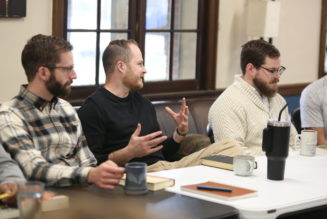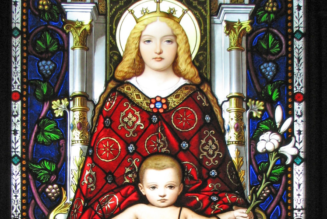Too often lately, it feels like the offices from which we’ve historically taken our cues — our political and community leadership, the punditry, local authorities and even some church groups — are populated with unserious people who can’t rise to a moment. Those who aren’t peddling pure boilerplate and calling it constructive thought are offering endless scolds about how we should live, think and speak, and how, if things aren’t getting better, it’s because we’re not doing enough of the right things. We should constantly be doing ever more of all these right things, it seems, until the world is saved and humanity perfected and then, finally, we may rest.
These exhausting harangues have become as penetrating (and authentic) as prop knives. They fall upon our ears like an approaching storm we’ve heard for too long -– an over-familiar sound and fury, often signifying nothing.
Which is why the Jimmy Buffetts of the world are important to have around, and why it is worth a respectful pause and some consideration when they pass.
There was something poignant in Buffett’s passing at the start of Labor Day weekend, when the days are growing shorter and the flip flops and Hawaiian shirts must be put away along with our fantasies of living on a beach, responsible for nothing beyond bringing dessert to the next get-together. Sweaters come out in the evening and time seems suddenly too valuable to waste away searching for misplaced meaning, too fleeting to reclaim the misspent days which, valued too late, are forever lost.
Some dismiss the laid-back island-escapism of Jimmy Buffett as being something hedonistic or uncaring. The world is heavy with material and spiritual misery on every continent — we see it daily in the headlines — and from that perspective he might seem to have been just another fizzy artist, part beach bum, part vagabond, rolling easily between a beer keg and a few cocktails capped with frivolous little umbrellas while singing of hazy nights and strange tattoos (how it got there, he hadn’t a clue!).
Buffett’s biggest hit, “Margaritaville,” celebrates a life lived in meandering dissipation; its plaintive chorus sounds only mildly regretful as the narrator wonders who is to blame for his under-achieving days until, in the final refrain he comes clean:
“Some people claim that there’s a woman to blame
But I know it’s my own damn fault.”
If you didn’t know that Buffett was raised Catholic, the last line is a dead giveaway.
That nearly everything in our lives will eventually reveal a component of self-accountability at its core is something every Catholic can identify with. Such recognition is a gift that comes to us not from so-called “Catholic guilt,” but from a formed Catholic conscience.
Buffett, like so many, journeyed away from his childhood Catholicism, although he still sang of belief and of prayer. But as any revert to the faith will tell you, the church “stays with you.” Even after walking away, the potency of its sacramental graces -– starting with Baptism wherein we are claimed for Christ -– means the conscience is always nudged to wakefulness, and then to action, even if we’d prefer the sleep of oblivion.
Buffett was stirred to action after Hurricane Katrina, according to one man. “I worked at the New Orleans Margaritaville (while) in college,” tweeted John Veron. “I ended up in Austin TX with the clothes on my back and little else. … Margaritaville cut us all $3,000 checks immediately after the storm, no questions asked. … They also let employees know that if any of us could get to ANY other Margaritaville, there was a job waiting for us.”
Employees who ended up in Orlando were “set up with clothes, jobs and housing,” Veron continued. “Jimmy Buffett showed up for us when we needed it. He took care of me and my friends. I’ll always be grateful.”
Anyone surprised by the story would do well to remember what St. Teresa of Avila said when a critic disapproved of her unedifying enjoyment of a roasted partridge at dinner. “There is a time for partridge and a time for penance,” the great reformer rightly replied.
Knowing how to strike a balance between rest and action is a very Catholic thing, for we are a both/and church, part Mary and part Martha. Jimmy Buffett knew how to recognize when to take action and when to relax and enjoy the life he’d been given. This speaks to the value of a conscience formed and sustained by sacramental graces, whose effects the Holy Spirit tends.
“To everything there is a season, and a time to every purpose unto heaven” (Eccl 3:1). There is a time to work hard for a weary world, but also a time to kick off the shoes, settle back and take our cues from Teresa, or from Jimmy Buffett. It is good, and perhaps the better part of wisdom, to riff off of the prayer St. John XXIII was said to have prayed each night: “It’s your (world), O Lord. I’m going to bed.”
Read More Commentary
Copyright © 2023 OSV News
<!–
–>
Services Marketplace – Listings, Bookings & Reviews









